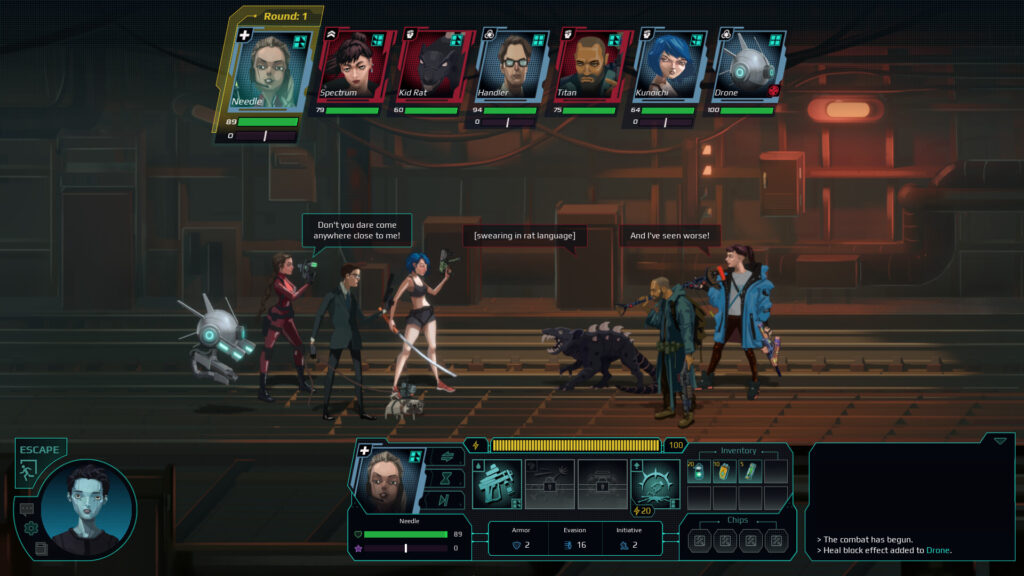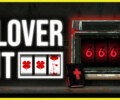
Developer: Comrade Bear Games
Publisher: Comrade Bear Games
Platform: PC
Tested on: PC
Twilight Wars – Review
In the crowded world of tactical RPGs, Twilight Wars makes a striking impression. Developed by Comrade Bear Games, it smartly fuses the stress-driven strategy of Darkest Dungeon with a mission flow and base-building, all while being wrapped in a dark, cyberpunk espionage world. It’s a tactical game where psychological endurance matters as much as your combat skills. All of this in a dystopian future where trust is a currency, and survival is never guaranteed.
Story
Set in a grim, technology-dominated future, Twilight Wars channels the mood and philosophy of Blade Runner, Shadowrun, and classic dystopian fiction. Mega Corporations have replaced governments, and shadow wars are fought through black ops, sabotage, and digital espionage. You lead a covert agency sponsored by a diminished United Nations, tasked with delicate and often morally grey operations like data theft and corporate infiltration.
What makes the story stand out isn’t just the worldbuilding, but how it’s presented. Instead of traditional cutscenes or voiced dialogue, the narrative is told through interactive dossiers, mission briefings, and well-written text interactions during and between missions. Conversations unfold through branching dialogue trees, offering insight into your agents’ backstories, personal motives, and fractured trust dynamics.
Story progression is nonlinear, with each operation revealing more of a slow-burning conspiracy that evolves with your choices. Trust between agents, shifting political alliances, and hidden motives influence how deep the “rabbit hole” goes. The lack of voice acting may initially seem like a limitation, but the sharp writing and immersive responses keep the narrative engaging. In many ways, this approach allows players to project their own interpretations onto the morally complex decisions they face.
The story doesn’t fall into the trap of being background noise to the gameplay. Instead, it’s tightly knit into every system. From the procedural events in the field to interactions with agents creating tensions back at base and on missions, the storytelling remains consistent and purposeful. Each mission feels like a meaningful step deeper into a corrupt world that doesn’t care if you survive it, only what you’re worth while you’re useful.
Graphics
The visuals favor clarity and atmosphere over photorealism. Character art is sharp and stylized, with clean UI elements that make managing agents, stats, and resources simple to navigate. While the combat animations are somewhat stiff and minimalistic, they get the job done.
Environments are moodily lit, using cool tones and neon accents that reflect the game’s cyberpunk aesthetic. While some assets could benefit from polish, the game’s visuals are cohesive and work well for its genre and tone.
Sound
The soundtrack complements the setting with synth-driven futuristic ambient tracks that evoke tension and a sense of urgency. Each mission has a distinct audio identity, from brooding silence during recon to pulsing beats during combat, enhancing the sense of dread and pressure.
There’s no voice acting, but the text-based dialogue is immersive enough to carry the story. Agent chatter, mission updates, and briefings are delivered through sharp writing, making you feel like you’re deep in classified intel. The text-based interactions are enhanced via music and the atmospheric layering of ambient sounds, all of which reinforce the setting’s oppressive mood.
Gameplay
The game revolves around squad-based missions structured like dungeon crawlers, similar to Darkest Dungeon. Each room presents a new threat, random event, strategic choice, or item to aid in your next encounter. Combat is turn-based, and positional skills have slot-based requirements such as healing, hacking, attack, and defense. Shuffling your team’s formation can make or break a fight. Abilities include damage-dealing, drone control, debuffs, and healing. These are some of the slot-based mechanics you use while in battles. Each agent has their perks depending on their archetype. So, you’ll have to make sure before you set out on a mission to assemble your team wisely, as every agent offers something different and can lead to success or complicate the mission.
The core system, “morale,” replaces traditional stress mechanics. It affects how agents react under pressure. Low morale can cause them to disobey orders, falter, or even crack, while high morale boosts effectiveness and unlocks positive traits. This adds emotional and psychological layers to combat, making each encounter feel weightier and more personal.
Outside missions, your base serves as a planning hub. You’ll recruit and negotiate with agents, each with their own distinct personalities, traits, and emotional needs, and you get to construct facilities like infirmaries and comms centers, and manage resources between operations. Agent relationships evolve based on how you treat them, what decisions you make, and how well you lead. These dynamics not only enhance immersion but also influence gameplay performance and mission success.
Missions feel gritty and grounded. You may think you’re saving the world, but here you’re surviving it. Dialogue and world events tease an expanding conspiracy, keeping each step forward in the campaign both risky and narratively satisfying, although some missions can come across as repetitive. Luckily, while the play style may or may not stay consistent depending on the agent you bring along, the story develops with each section, and new enemies appear from time to time. We suggest taking your time at the hub and preparing yourself.
Conclusion
Twilight Wars offers a compelling blend of tactical combat, agent management, and cyberpunk storytelling, weaving narrative into every gameplay system with choices that impact both team psyche and future missions. Its oppressive, atmospheric world is enhanced by mechanics and character depth, making it a standout for fans of gradual-paced, psychological strategy. However, its deliberate pacing, text-heavy narrative, and sometimes repetitive gameplay loop may not appeal to everyone. For those drawn to methodical tension and rich world-building, it offers a rewarding experience. Players seeking faster action or more dynamic storytelling, however, may find it less engaging.










No Comments